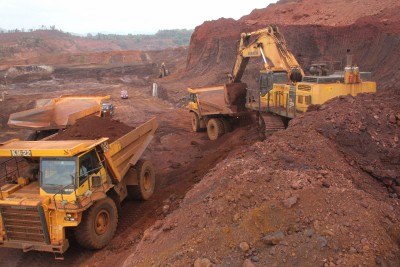
Panaji, The Trinamool Congress-Maharashtra Gomantak Party (TMC-MGP) alliance on Saturday promised to revive Goa's virtually non-functional mining sector within 250 days of coming to power, while also assuring to double the state government's spending on health and education sectors, if the alliance comes to power in the coastal state.
A joint manifesto released by the two alliance partners on Saturday has also promised 33 per cent job reservation for women in government and private sectors.
"Instituting environmentally sustainable mining practices (within 250 days of TMC forming the government) with an 80 percent reservation for Goans in extraction contracts and mining jobs. Alongside, all income generated through the Goa Mineral Corporation to be utilised to fund welfare schemes in the state," the manifesto states.
Fresh mining excavation in the state has been shut down since 2018, when the Supreme Court of India scrapped renewal of 88 mining leases citing irregularities.
"...33 per cent reservation for Goan women in all jobs including the private sector, 50% reservation for women in all local bodies, two fast-track courts (one in each district) to address crimes against women and children, and an SOS Suraksha mobile app for women's safety," the manifesto also promises.
The manifesto has also assured that a TMC-MGP government would boost Goa's gross domestic product to Rs. 1.8 lakh crore from the existing Rs 0.71 lakh crore, through creation of 200,000 new jobs with 80 per cent reservation for Goans and 10,000 vacancies in the government sector to be filled in 3 years.
"24x7 public transport with a doubled fleet of state-owned buses, 24x7 uninterrupted electricity supply, pothole-free all-weather roads along with functional drainage systems and piped drinking water to all households as well as state-of-the-art sports infrastructure and training facilities in every taluka," the manifesto also said.
A joint statement by the alliance partners also said that the manifesto is aimed at touching the lives of every Goan and that it is a product of "extensive consultations with scholars, journalists, lawyers, community leaders, social activists, civil society members, and key stakeholders in various fields".


.jpeg)

